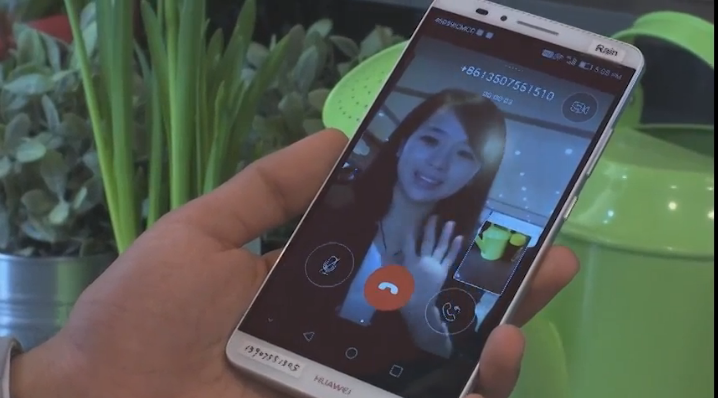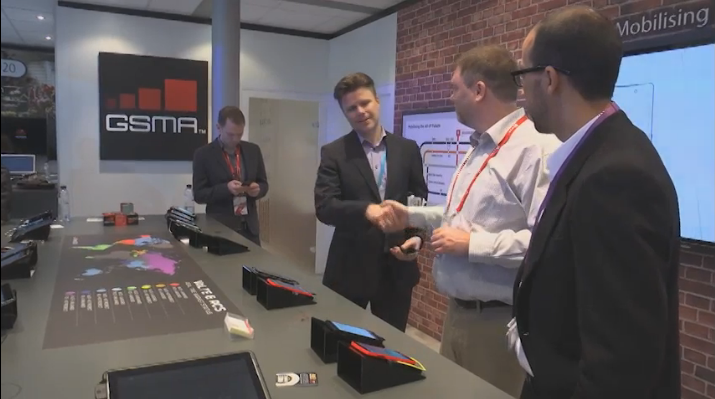






More Information
RCS Business Messaging provides brands with the opportunity to increase their engagement with customers by making use of business feature-rich mobile messaging using chatbots and artificial intelligence (AI).
User adoption is simple and straightforward. There is no need to download multiple apps as users gain direct access to a range of brands and services from within the messaging app itself, allowing them to engage with virtual assistants to book flights, buy clothes, make restaurant reservations and more.
Frequently Asked Questions
Does interoperability limit the scope of operator differentiation?
No. SMS and MMS are good examples of successful service enablers that have thrived based on interoperability while encouraging a proliferation of differentiated value-added services. RCS provides core functionality, enabling app development and differentiation, based on underlying interoperability and compatibility, such as instant messaging. Interoperability ensures that core RCS service features will operate seamlessly between users, whichever operator they belong to and whatever mobile phone they have.
How do you create a unique proposition for end-users?
The compelling strapline for RCS is: ‘It’s just there, and it just works’. RCS gives end-users the immediate opportunity to communicate with others in a variety of ways, without requiring installation, registration, etc. Furthermore, Rich Communications Services (RCS) boasts levels of security and QoS that only operators can provide and there will be no ‘closed community’ limitations. In other words, RCS will be available to all mobile operator subscribers, independent of handset and users will be made aware of an address book contact’s service capability. RCS provides end-users with a frictionless and trustworthy experience across networks and borders. Only mobile operators are capable of delivering such a service, and it is what today’s end-users have come to expect.
What infrastructure will operators need to deploy to take advantage of RCS?
RCS services are based on the IP-Multimedia Subsystem (IMS), as specified by the 3GPP and adopted by major industry standardisation bodies for mobile and fixed networks. Operators may implement their own IMS solution or can access the services of a hosted solution to provide a pre-IMS or partial-IMS implementation. The hosted solution may be a temporary or permanent solution for the operator.
Will RCS interconnect to Online Service Provider (OSP) apps such as Facebook Chat for example?
Example demonstrations from several vendors have shown that it is technically possible to achieve integrations between RCS and OSP apps. Such interconnects will be dependent on commercial agreements between operators and OSPs and will be based on similar terms and conditions as interconnect between RCS operators.
Can the RCS client be put on fixed devices such as IMS-registered IP phones and will these interwork with the mobile RCS clients?
An RCS client could be developed to work on IMS-registered IP phones and interworking would be possible if the networks are interconnected.
Aren’t the features of RCS inferior to Online Service Provider (OSP) app alternatives? How should operators position themselves to compete with them?
On the contrary, the current feature set, e.g. one-to-one and group chat, image and file-sharing of RCS, is competitive with most OSP services. Furthermore, RCS also offers the unique benefits of providing video, image and file share in-call, so that users do not have to switch apps to access these services. RCS also offers service capability discovery, which means that the user can be confident that if they see that a service is available, they can be sure that it will work. Operators can position their RCS services as easy to discover, install, set up and use and can offer a secure, reliable and private user experience.
Since WhatsApp, Viber, Line services etc. are already presented as IP-based apps, what is the added value of RCS?
The critical differentiator for RCS is that when natively integrated into the mobile phone or via a downloadable app, no intervention is needed by the end-user – ‘it’s just there’. Furthermore, only relevant and available services are offered to the user thanks to dynamic capability discovery – ‘it just works’.
What opportunities does an RCS deployment offer an operator?
The opportunity for the operator is to retain its relevance as the primary provider of personal communications services to its customers and reinvigorate its core communications products, by innovating and differentiating versus online service providers with ease of use, ubiquity, interoperability and privacy. New revenue-generating services can be developed on the RCS platform and will be discoverable in the right place, in the proper context.
How can operators monetise RCS-based services? Additional fees or data charging?
There are many ways in which RCS based services can be monetised: charging customers per event for certain services, bundling services into daily, weekly or monthly subscription packages or charging explicitly for data volumes consumed. In some cases, third-party service providers could be charged for the use of Rich Communications capabilities, e.g. video share or file share in the delivery of their specific services, such as in gaming apps or to enrich customer care services.
For an operator with strong on-net effect, Online Service Providers (OSPs) are not currently a significant threat and SMS price is already low, does it make sense to launch RCS at this moment? If they do so, isn’t this anticipating the loss of on-net effect?
RCS offers significant opportunities to enrich the consumer’s communications experience now, encouraging them to communicate more and helping to strengthen the mobile operator’s relationship with them. Maintaining the mobile operators’ relevance as the primary provider of communication services will become even more critical as competition shifts from the messaging market to the far more valuable voice market.
With the availability of high bandwidth, low latency, LTE networks, many more third parties could offer even more competitive mobile VoIP services. Operators need to act now to prepare themselves to compete with third-party service providers effectively.
What are the costs and timescales to implement RCS?
These are dependent on many factors, in particular, the current size and status of the operator’s network. For full deployment, there are a variety of architectural options that can be employed to achieve RCS deployment without significant upfront investments or complex network integrations.
Deployment of the first commercial RCS networks took less than nine months, with RCS Solutions taking as little as three months.
We can now confirm, given the ecosystem experience and knowledge acquired during these initial deployments, that future implementations have been much faster:
- LATAM region implemented six-country launches within five months with a hosted solution.
- Sprint, the second USA operator to launch RCS services, was live with a hosted solution within 12 weeks.
What is the market demand for this product? How will RCS compete with Online Service Providers (OSPs)?
The popularity of several OSP services best demonstrates the market demand. With the advent of all-IP networks and greater penetration of smartphones, demand for Richer Communications will grow. Yet, only operators can deliver quality, secure services whose scope is not
limited to a specific OEM or OS universe. Complementing this will be service capability, which will guarantee that end-users will not have a “trial and error” experience when attempting to communicate with address book contacts.
Who is the target audience for RCS?
Consumers who wish to stay in touch with friends and family, and capture and exchange rich media with them as events happen. The youth demographic is particularly attracted to the RCS proposition; and Business users who need to exchange multimedia documents and work collaboratively with colleagues.
How can the Future Networks team assist operators in deciding to commit to RCS?
Both operator and the GSMA’s members of the Future Networks team welcome the opportunity to assist other operators in their efforts to decide to commit to RCS. Through documentation, content, face-to-face sessions, workshops, C-level briefings, live demos and other methods, the Future Networks team is ready to inform and convince.
Operators considering RCS should not hesitate to contact the Future Networks team, and we look forward to working with you.
RCS Business Messaging is an opportunity for operators to reshape and revitalise their messaging services and play a central role in the future of IP-based messaging.
RCS Business Messaging provides the opportunity for operators to grow revenue by enhancing their business to offer new capabilities and share in the revenue generated by new business paradigms such as AI, chatbots and in-chat search.
The following nine principles are essential to ensure trust in RCS Business Messaging and secure its place as the communications platform of choice.
- Openness
- Innovation
- Reach
- Quality
- Protection
- Reward
- Value
- Transparency
- Privacy
You might also like
Network Interconnection of Rich Communication Services between Orange France and SFR
Thursday 21 May, 2015 | Digest | Latest News | RCS Digest
Mobile operators Orange France and SFR have interconnected their networks to deliver Rich Communications Services (RCS) on native devices. This means customers can chat, content share, group chat, video share and experience integrated messaging across networks. The ...
IP Communications Issues Registry
Thursday 21 May, 2015 | Digest | Latest News | RCS Digest | Volte Digest
The IP Communications Issues Registry now contains hundreds of issues and solutions which can be used as a knowledge base for IMS service interoperability, VoLTE, ViLTE and RCS. The GSMA Network 2020 Programme is working to ensure a stable and interoperable platform for the ...
The momentum of launches and interconnections accelerates for the Network 2020 Programme
Friday 24 April, 2015 | Digest | Latest News | RCS Digest | Volte Digest
Over the last month the Network 2020 Programme has seen the momentum of RCS grow, in terms of launches and interconnection. With RCS regaining drive within the industry, we are seeing more and more devices that have embedded native RCS capabilities. During April 2015 O2 ...
Mobile 360 Series – Latin America Network 2020 at the show
Friday 24 April, 2015 | Digest | Latest News | RCS Digest | Volte Digest
Join the Network 2020 Programme at the GSMA’s first Mobile 360 Series in Latin America, to be held on the 13th and 14th May 2015 at the Sheraton Rio in Rio de Janeiro, Brazil. This specialised event will combine a thought-leadership conference with workshops, GSMA Latin ...
Network 2020 Webinar – Interconnected Mobile All-IP Communications and the benefits for Operators
Friday 24 April, 2015 | Digest | Latest News | RCS Digest | Volte Digest
The latest webinar in our Network 2020 webinar series focused on the benefits of interconnected mobile All-IP communications to the operator. Attendees were able to hear from global operators who are committed to launch interconnected solutions – driving scale and increasing ...
The Network 2020 commercial and retail zone: Business-to-Business All-IP solutions
Thursday 19 March, 2015 | Digest | Latest News | RCS Digest | Volte Digest
Enriched communication solutions offering innovative B-2-B opportunities gave operators some insights into the potential for expanding their propositions. The Network 2020 Programme showed off the breadth and depth of All-IP solutions for commercial and retail applications ...
The operator Network 2020 demonstration table: hands-on All-IP solutions demonstrated live
Thursday 19 March, 2015 | Digest | Latest News | RCS Digest | Volte Digest
One of the key focus areas in this year’s exhibition in the innovation City was a series of demonstrations from operators and leading companies in the All-IP ecosystem – all located around the ‘operator demonstration table’. Discussions with visiting representatives from ...
The All-IP Rich Communications connected car
Thursday 19 March, 2015 | Digest | Latest News | RCS Digest | Volte Digest
In the GSMA’s Innovation city, the Network 2020 Programme were delighted to reveal what is believed to be the first VoLTE and RCS capable connected car. Developed by Summit Tech in collaboration with Alcatel-Lucent, it was parked outside the GSMA’s Innovation City railway ...
GSMAi Report – Building the case for IP Communications – Download now!
Thursday 19 March, 2015 | Digest | Latest News | RCS Digest | Volte Digest
In support of the GSMA’s Network 2020 Programme, a report from GSMA Intelligence was launched the week prior to Mobile World Congress 2015, exploring the rationale for IP-Communications as well as analysing the adoption path in the context of both networks and native ...
New RCS Specification 5.3 published during Mobile World Congress 2015
Thursday 19 March, 2015 | Digest | Latest News | RCS Digest
At Mobile World Congress the new RCS Specification 5.3 specification has now been officially approved by the PSMC and published by the RCS GSG group. The importance and main focus of this new specification release has been around convergence and reducing optionality. The ...
Network 2020 Seminar – ‘Mobilising the All-IP Future’
Thursday 19 March, 2015 | Digest | Latest News | RCS Digest
The Mobile World Congress week started for Network 2020 on Monday 2nd March with its operator seminar exploring the theme ‘Mobilising the All-IP Future’. A packed seminar room with additional delegates in the overflow area heard from senior representatives from operators and ...
Building the case for IP-Communications
Wednesday 18 February, 2015 | Digest | Latest News | RCS Digest | Volte Digest
Mobile communication has evolved dramatically over the past twenty years, from the advent of SMS and mobile messaging, to the emergence of smartphones and the mobile application ecosystem. Innovative third-party providers running ‘over the top’ of mobile operator’s high ...
Revision of the RCS Global Common Core Service Description Document RCCC.61
Monday 19 January, 2015 | Digest | Latest News | RCS Digest
The RCS Global Common Core Service Description Document RCCC.61 that details how the features in the Common Core should be implemented is currently under-going a revision by the Global Functional Requirements Group. The Group, chaired by Thomas Welzel of Deutsche Telekom, is ...
Accreditation of the RCS Blackbird release and growth of native RCS devices
Friday 28 November, 2014 | Digest | Latest News | RCS Digest
The GSMA’s Network 2020 Interoperability Testing (IOT) team continues to see progression of joyn Blackbird accreditations for the RCS ecosystem. As of November 1st 2014, accreditations for new joyn Blackbird devices and clients were formally handed over to the GCF, although ...
AT&T and Verizon Wireless get themselves connected
Monday 24 November, 2014 | Digest | Latest News | RCS Digest | Volte Digest
Interconnecting networks between mobile operators offers many benefits to customers such as interoperable VoLTE (voice over LTE) calls with HD Voice quality as well as interoperable Rich Communications Services (RCS). It works by using all-IP (Internet Protocol) technology, ...
All-IP Mobile Communications
Monday 24 November, 2014 | Digest | Latest News | RCS Digest | Volte Digest
The ‘Green Button Promise’ is a key focus area within the Network 2020 Programme. With support from a number of our eco-system partners, we have created an exciting video to demonstrate All-IP Communications in action on a commercial LTE network. This is the first time this ...
Customers and operators can benefit from interconnecting mobile All-IP communications
Monday 24 November, 2014 | Digest | Latest News | RCS Digest
IP based interconnection between mobile operators offers many benefits to both Operators and customers. It provides Operators with scalability and increased reachability of IP-based communications services and provides customers with interoperable VoLTE (Voice over LTE) ...
GSMA expands its support for IP Communication Launches and Interoperability Testing
Friday 19 September, 2014 | Digest | Latest News | RCS Digest | Volte Digest
Helping operators and OEMs to reduce the time to market and speed up the launch process for IP Communications is a vital part of the Network 2020 Programme’s work. The GSMA has two teams dedicated to this task, and has recently expanded their scope and activities to provide ...
Why ‘common’ is good for IP Communications
Friday 19 September, 2014 | Digest | Latest News | RCS Digest
A major request from operators to the GSMA is to help speed up the time to market for native All-IP communication devices and solutions. The quicker a new product or service can get to the market, the better it is for consumers and the more opportunities it gives to ...
Loud and clear: operators moving the future of voice on
Saturday 19 July, 2014 | Digest | Latest News | RCS Digest | Volte Digest
It won’t have escaped your attention that over the past few weeks a number of global operators have made significant announcements regarding Voice over LTE (VoLTE) deployments, particularly in Asia and North America. Operators including AT&T, NTT DOCOMO, PCCW-HKT, ...

















